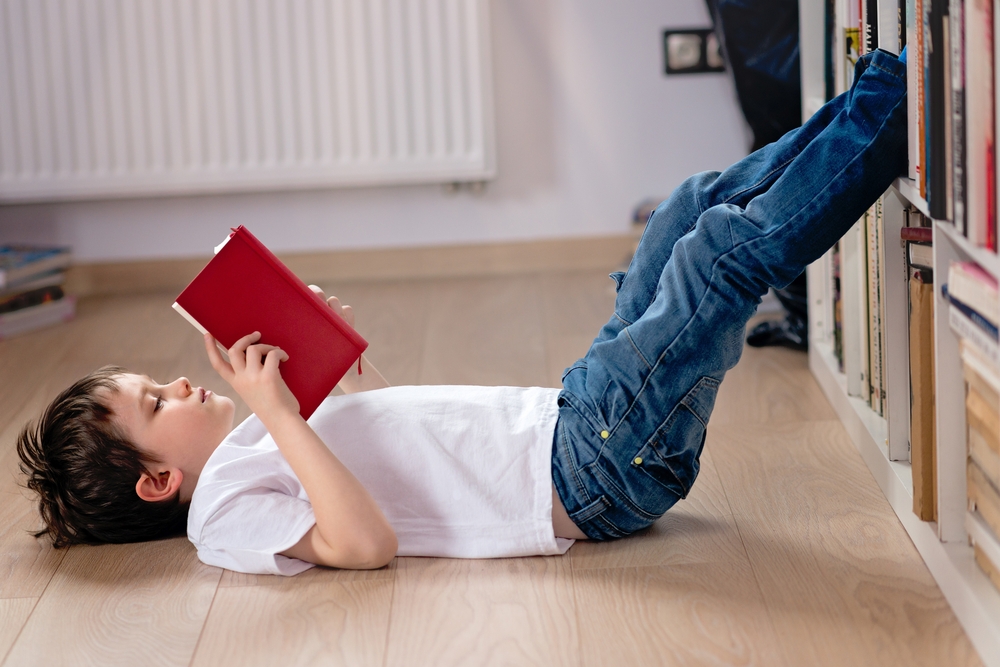
/ Resources /
Advice
Great reading Tips (Reviews and tips to get kids reading)

Parents often ask how they can help their children learn to read; and it’s no wonder that they’re interested in this essential skill. Reading plays an important role in educational success.
Here are some practical recommendations for helping pre-schoolers and school-age students learn to read.
1. Teaching reading will only help.
Sometimes, parents are told early teaching is harmful, but it isn’t true. You simply can’t introduce literacy too early. I started reading to my children the day they were born! As teenagers they can still recite many of their favourite picture books. The “dangers of early teaching” has been a topic of study for more than 100 years, and no one has ever found any convincing evidence of harm. Moreover, there are hundreds of studies showing the benefits of reading to your children when they are young.
2. Teaching literacy isn’t different than teaching other skills.
You don’t need a Ph.D. to raise a happy, healthy, smart child. Parents have been doing it for thousands of years. Mothers and fathers successfully teach their kids to eat with a spoon, use a potty, keep their fingers out of their noses, and say “please.” These things can be taught pleasantly, or they can be made into a painful chore. Being unpleasant (e.g. yelling, punishing, pressuring) doesn’t work, and it can be frustrating for everyone. This notion applies to teaching literacy, too. If you show your 18-month-old a book and she shows no interest, then put it away and come back to it later. If your child tries to write her name and ends up with a backwards “D,” no problem. No pressure. No hassle. You should enjoy the journey, and so should your child.
3. Read to your kids.
I know everyone says this, but it really is a good idea — at least with pre-schoolers. The enjoyment of being read to can be seen in the meteoric rise of audiobooks. Reading a book or story to a child is a great, easy way to advance literacy skills. Research shows benefits for kids as young as 9-months-old, and it could be effective even earlier than that. Reading to kids exposes them to richer vocabulary than they usually hear from the adults who speak to them, and can have positive impacts on their language, intelligence, and later literacy achievement. What should you read to them? There are so many wonderful children’s books. Visit your local library, and you can get an armful of adventure. You can find recommendations from kids at the Common Sense media website – Here or at the Australia Reads website Here.
4. Have them tell you a “story.”
One great way to introduce kids to literacy is to have them recount an experience or make up a story. A typical first story may be something like, “I like fish. I like my sister. I like Grandpa.” Write it as it is being told, and then read it aloud. Point at the words when you read them, or point at them when your child is trying to read the story. Over time, with lots of re-reading, don’t be surprised if your child starts to recognise words such as “I” or “like.” (As children learn some of the words, you can write them on cards and keep them in a “word bank” for your child, using them to review later.)
5. Teach phonics (letter names and their sounds).
You can’t sound out words or write them without knowing the letter sounds. A quick glance at a toy store website and you will find loads of products based on letter names and letter sounds, including ABC books, charts, cards, blocks, magnet letters, floor mats, puzzles, lampshades, bed sheets, and programs for tablets and computers. You don’t need all of that (a pencil and paper are sufficient), but there is lots of support out there for parents to help kids learn these skills. Keep the lessons brief and fun, no more than 5–10 minutes for young ones.
6. Listen to your child read.
On a visit to the library, borrow some simple early readers. Have your child read to you. If it doesn’t sound good (mistakes, choppy reading), have her read it again. Or read it to her, and then have her try to read it herself. Studies show that this kind of repeated oral reading makes students better readers, especially when it is done at home, in a safe, accepting atmosphere.
7. Promote writing.
Literacy involves reading and writing. Having books and magazines available for your child is a good idea, but it’s also helpful to have pencils, crayons, markers, and paper. Encourage your child to write. One way to do this is to write notes or short letters to her. It won’t be long before she is trying to write back to you.
8. Ask questions.
After reading to your child, get her to retell the story or information. If it’s a story, ask who it was about and what happened. If it’s an informational text, have your child explain what it was about and how it worked, or what its parts were. Reading involves not just sounding out words, but thinking about and remembering ideas and events. Improving reading comprehension skills early will prepare her for subsequent success in more difficult texts.
9. Make reading a regular activity in your home.
Set aside some time when everyone turns off the TV and the web and does nothing but read. Make it fun, too. When my children finish reading a book that had been made into a film, we’d make popcorn and watch the movie together. The point is to make reading a regular enjoyable part of your family routine.
Happy reading!

You may also like

Welcome to the first series of Euka Stories. The purpose of this series is to give you a glimpse into the everyday lives of homeschooling families by shedding light on their challenges, triumphs, and trials. Our first story is about one of our family’s – The Rogers, who are travelling around Australia with their 2 […]
Welcome to the first series of Euka Stories. The purpose of this series is to give you a glimpse into the everyday lives of homeschooling families by shedding light on their challenges, triumphs, and trials. Our first story is about one of our family’s – The Rogers, who are travelling around Australia with their 2 […]

More and more parents are finding themselves facing the task of homeschooling without the luxury of time and research. This can occur due to various circumstances such as a sudden change in health diagnosis, a bullying incident, a family’s decision to move, or external factors that disrupt regular school attendance. Accidental homeschooling often involves parents […]
More and more parents are finding themselves facing the task of homeschooling without the luxury of time and research. This can occur due to various circumstances such as a sudden change in health diagnosis, a bullying incident, a family’s decision to move, or external factors that disrupt regular school attendance. Accidental homeschooling often involves parents […]

It may sound unnecessary to help your child find their voice when they are constantly demanding and outspoken, however helping a child find their voice means more than letting them say whatever they like, whenever they like. Finding their voice allows them to communicate effectively and appropriately. It is supporting and empowering them to develop […]
It may sound unnecessary to help your child find their voice when they are constantly demanding and outspoken, however helping a child find their voice means more than letting them say whatever they like, whenever they like. Finding their voice allows them to communicate effectively and appropriately. It is supporting and empowering them to develop […]





